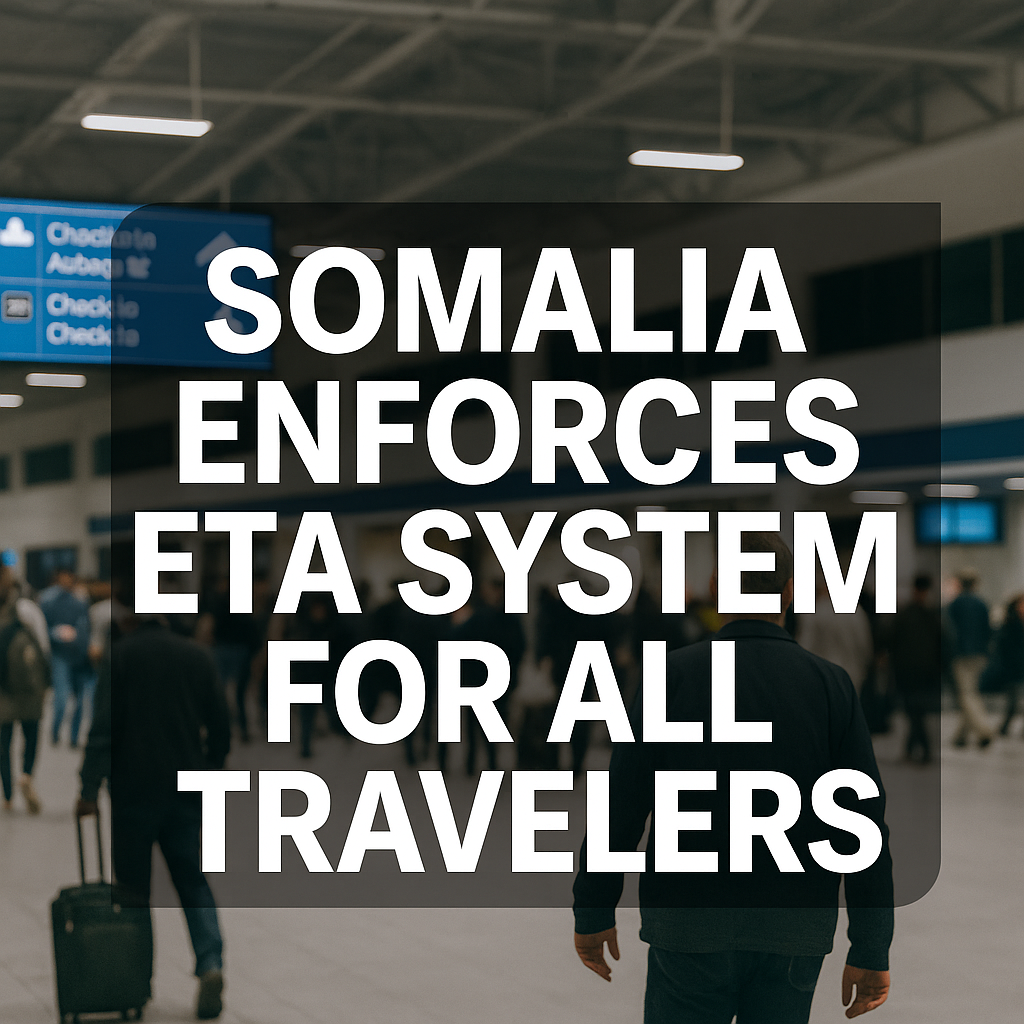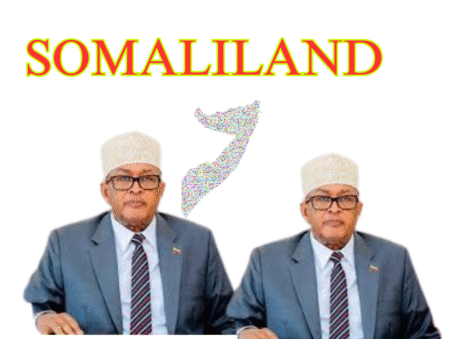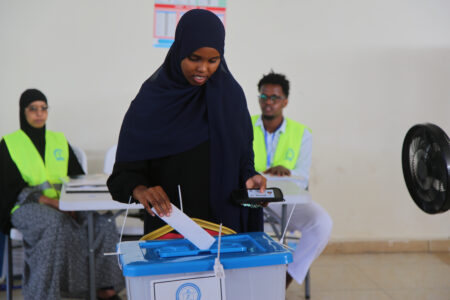The Federal Government of Somalia has officially implemented a nationwide Electronic Travel Authorization (ETA) / E-Visa requirement for all passengers traveling to the country. Effective immediately, airlines around the world are prohibited from boarding any traveler—regardless of nationality—who has not received ETA approval prior to departure.
This new policy applies to all airports within Somalia, including Mogadishu, Hargeisa, Berbera, Garowe, and Bosaso. It marks one of the most significant border-management reforms in the country’s recent history.
A Strategic Move to Strengthen National Security
Somalia has long faced security threats from al-Shabaab, ISIS-Somalia, and transnational criminal networks. These groups have historically exploited weak entry systems, forged travel documents, and unmonitored border points to move fighters and facilitators into the country.
The ETA system introduces a structured digital screening process that allows Somali authorities to:
- Verify the identity of every traveler before arrival
- Conduct background checks against security databases
- Identify high-risk individuals
- Reduce the movement of extremist operatives
By shifting passenger vetting from the airport arrival halls to the point of departure, Somalia significantly reduces the risk of extremist infiltration.
Blocking Drug Trafficking and Port-Based Smuggling
Beyond terrorism, Somalia’s ports have increasingly become targets for:
- Illegal drug trafficking
- Chemical precursors used in explosive manufacturing
- Smuggling networks operating outside government oversight
- Unregulated dhuxusha (charcoal) shipments, a major funding source for criminal and extremist groups
The new ETA framework integrates with customs and port-management systems, enabling authorities to link passenger identity to cargo movement. This alignment strengthens monitoring mechanisms at major entry points and supports efforts to curb illicit flows moving through Somali territories.
Ending the Era of “Unverified Travelers”
For decades, Somalia struggled with individuals entering the country without proper identification, often using forged documents or traveling under vague circumstances. This loophole has allowed extremist groups, foreign operatives, and cross-border traffickers to move with ease.
With the ETA system:
- Every passenger must submit personal details before travel
- Every passport must pass digital verification
- All information is screened in advance of arrival
Travelers who fail to meet the requirements cannot board their flight. This marks the end of anonymous entry into Somalia.
Modernizing Governance and Enhancing International Confidence
The adoption of electronic travel authorization aligns Somalia with international standards already implemented by countries such as:
- the United Arab Emirates
- Kenya
- Rwanda
- Turkey
- the United Kingdom
Such systems reduce administrative burdens, improve data accuracy, and enhance interagency coordination.
For Somalia, the move signals a commitment to:
- modern state governance
- responsible border oversight
- international aviation compliance
- increased investor confidence
- reinforcement of national sovereignty
As the country works to rebuild institutions and restore stability, the ETA system becomes a foundational tool for strengthening the rule of law.
What Travelers Need to Know
All travelers must now:
- Apply for ETA/E-Visa approval before departure
- Receive confirmation prior to airline check-in
- Present valid documentation that matches their ETA application
- Expect stricter screening and verification procedures
The policy applies to:
- Somali citizens traveling with foreign passports
- Dual-citizens
- Diaspora visitors
- Business travelers
- Aid and NGO staff
- Tourists
- Regional transit passengers
Airlines are required to comply fully with the directive, as failure to do so may result in fines, penalties, or denied landing permissions.
A Significant Step Toward Safer Borders and a More Stable Somalia
The enforcement of the ETA system represents a decisive milestone in Somalia’s national security strategy. By tightening entry controls, improving traveler verification, and coordinating digital data with port and customs authorities, the government aims to curb the activities of extremist groups, disrupt smuggling networks, and protect the country’s borders.
As Somalia continues its path toward stability and state-building, the ETA system stands as a clear demonstration of its commitment to security, transparency, and international best practices.





